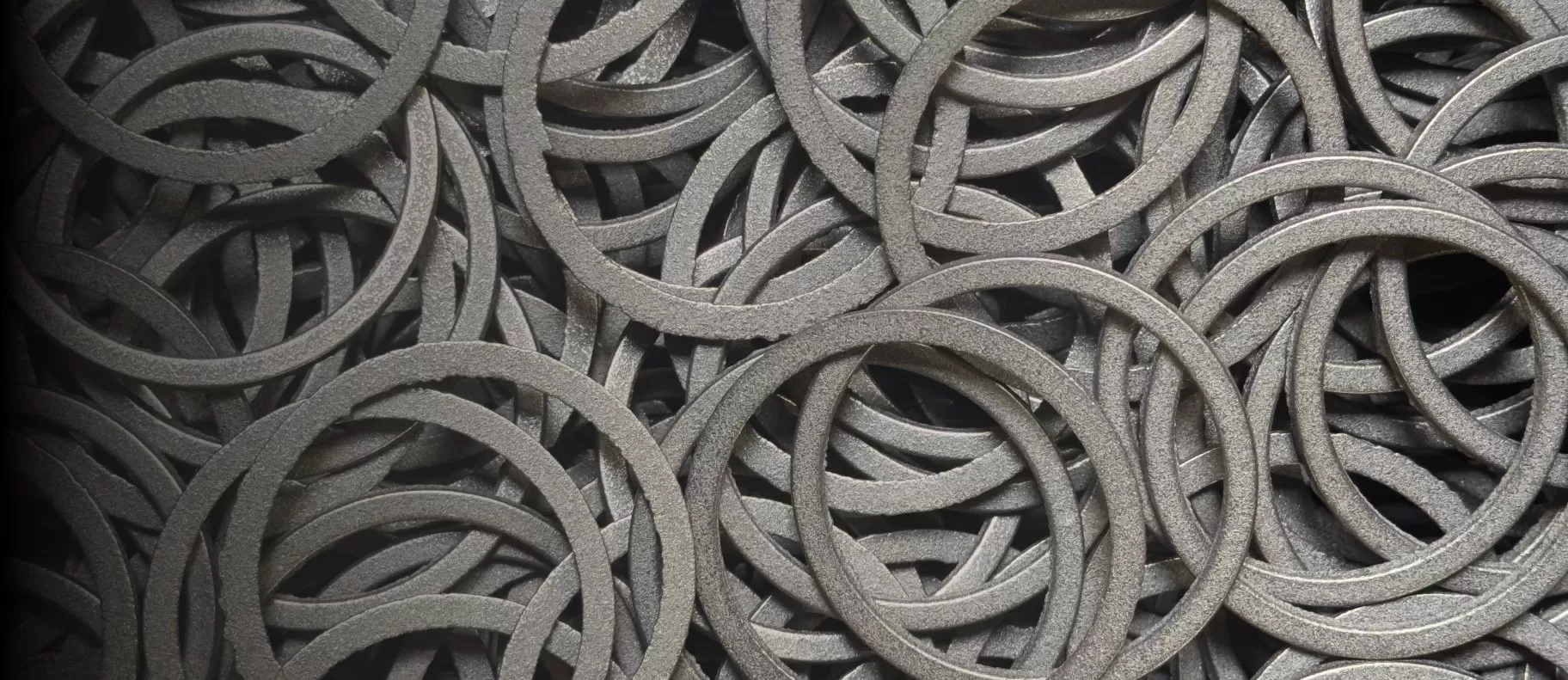
There are different types of alloys used at Segment AB:
Cast Iron :
Grey cast iron is considered the best material for segment manufacturing. FGL : Lamellar graphite cast iron, has a Carbonne content of more than 2%. It is an easy to machine material, which is rigid, resistant to corrosion and compression. This material also allows the segment to absorb vibrations.
Steel :
Steel is a material resistant to wear with a long life. However, it is a difficult material during running in.
Bronze :
Bronze is a soft material to work with but does not have a great life expectancy. It is a material that has a good friction and stirring property but a poor weldability. It is therefore a part that is best suited to the manufacture of parts intended to go fast with high pressure, the bronze is able to withstand the impact.
Alacrite:
It is a stainless material composed of alacrit and has excellent mechanical strength values up to 1100°C. Able to resist the projection of salt from chemical products such as hydrochloric, nitric, phosphoric and sulphuric acid. This material is generally applied to stationary or flying gas turbine components.
All fonts are supplied from Cronite Mancelle.
This foundry is located on the same site, which specializes in heat treatment and segment casting. It has the quality approvals enabling it to supply the markets with the most stringent requirements.
The other materials are supplied on the French market from quality suppliers.
|
FGLF5 |
unit, Ø 25 to 120 mm |
Standard, equivalent: Kl, FI 3. GHS 1 series greater than 300 pieces |
|
F30 |
unit, diameter 120 to 200 mm, h 1 > 4 mm |
series of more than 300 pieces |
|
FGL F51 |
unit, diameter 28 to 150 mm, h 1 > 4 mm |
equivalent: GZ (SNCF) series greater than 300 pieces |
|
FGLF56 |
tubes, static, Ø over 300 mm |
standard, all series, large diameters |
|
FGLF56 |
tubes, centrifuged, Ø de 40 à 300 mm |
standard series < 300 pieces up to Ø200 mm, all series above Ø200 mm |
|
Z 170 CS 15 |
tubes or jets |
tubes |
|
Z 200 CD 13-2 |
tubes or jets |
|
|
S 6-5-2 |
tubes or jets |
|
|
BRONZE UE 12 |
|
Cast iron ring: Cast iron is not defined by standard cast iron standards that cannot be applied to thin mechanical parts such as segments. ISO 6621/3 defines segment materials by mechanical characteristics. Standard cast iron of class 10, subclass 12, has a typical modulus of elasticity E = 100,000 N/mm2 for a minimum hardness of 95 HRB and a bending resistance of 350 N/mm2. This class 12 is applicable to segments manufactured in sufficient quantitative series, with a diameter of 30 to 200 mm. Cast iron is produced in the electric furnace; the analysis varies according to the section of the unit foundry model. It’s a perlitic cast. For the manufacture not mentioned above, cast iron is used in centrifuged tubes or, for small diameters, cast iron in jets. These fonts are class 11. We can manufacture spheroidal graphite cast iron segments with a 160,000 modulus of elasticity; these are class 50 cast iron. For segments of exhaust joints working at very high temperatures, a steel type Z170 CS 15 is used.